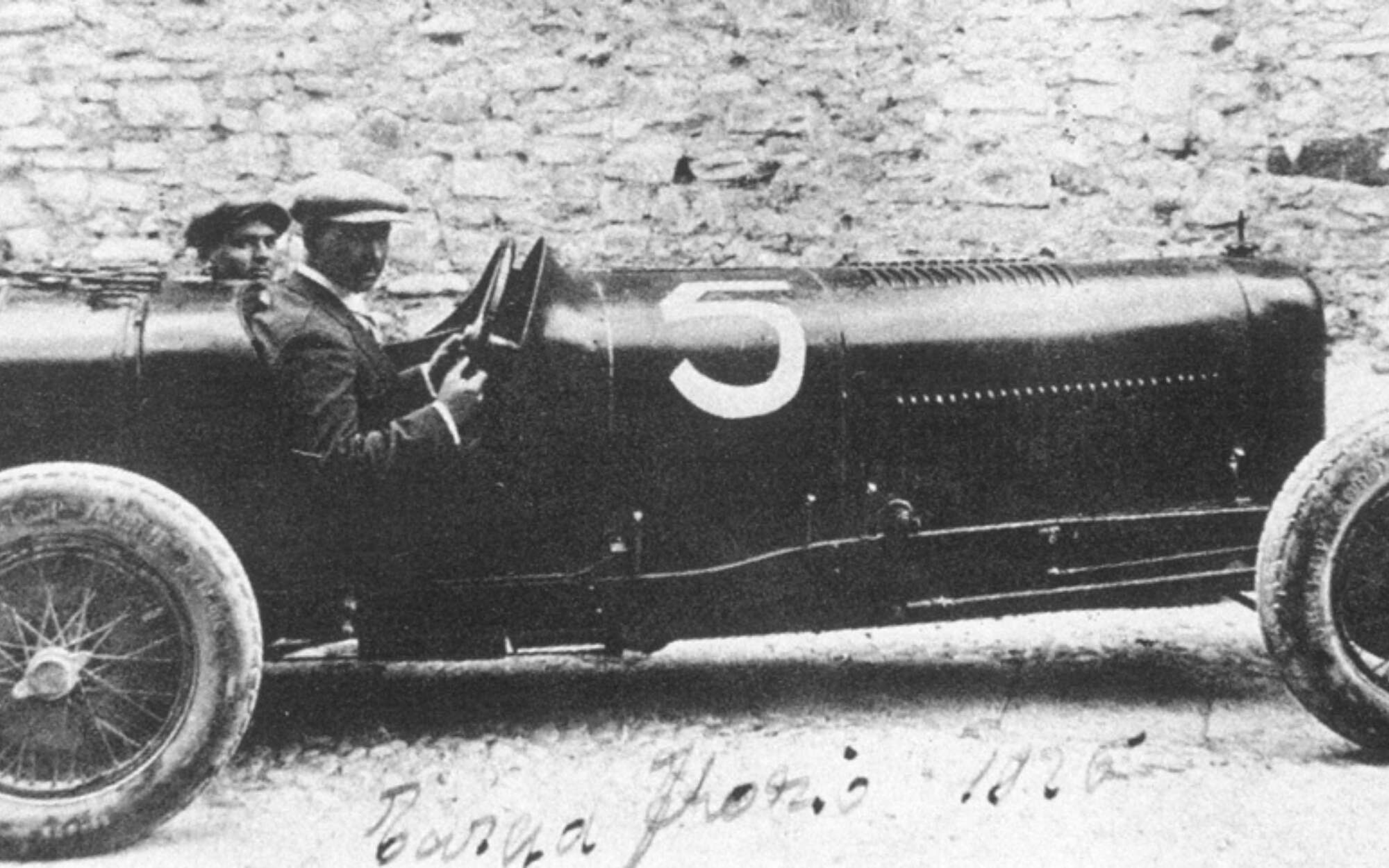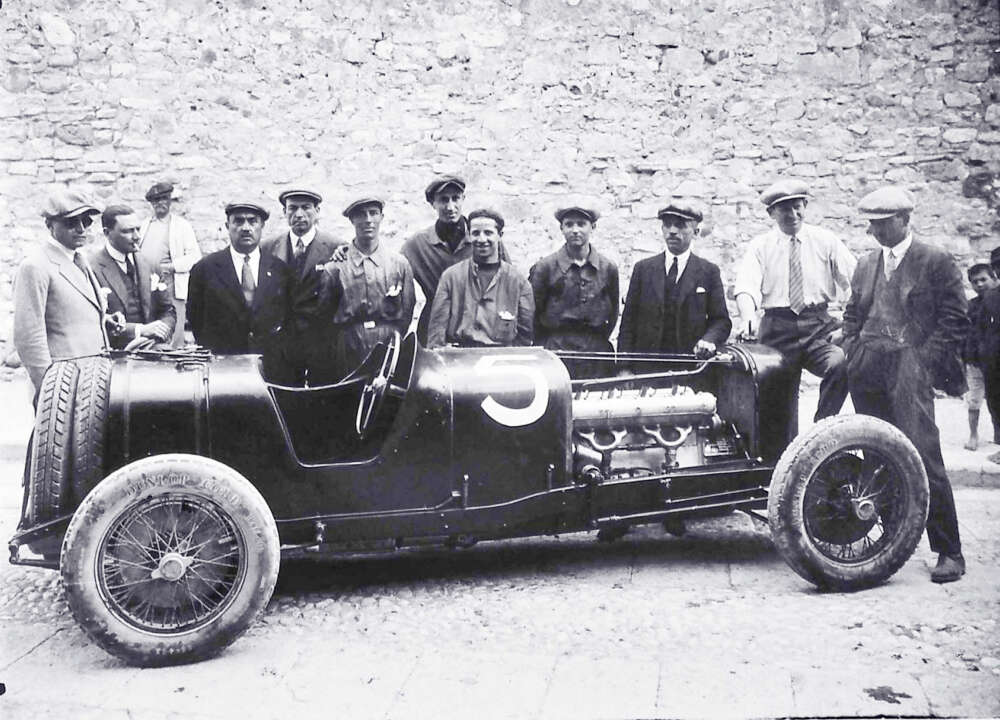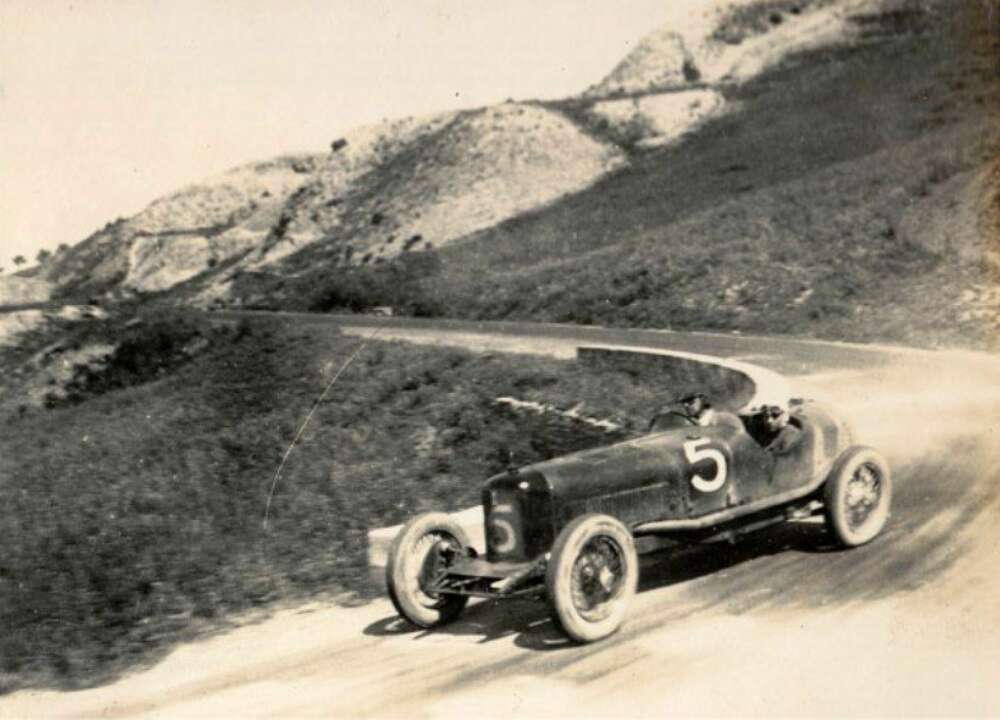The Tipo 26 is the first Maserati to bring home a victory for the brand.
Nearly a century has passed since Alfieri Maserati etched his name into racing history with the debut of the Maserati Tipo 26 at the 1926 Targa Florio. As we revisit this moment through the pages of period-style reporting, we do more than commemorate a race — we honour the man, the machine, and the movement he ignited.
Through projects like Classiche Masters and Alfieri Magazine, we support the efforts of fans, owners, and collectors to preserve and celebrate the stories that shaped our shared passion. These are initiatives made for enthusiasts, by enthusiasts — not curated from a distance but built on the ground by those who live and breathe the marque.
This tribute is a humble offering to Alfieri Maserati — driver, engineer, visionary. A man whose spirit still resonates in every rev of a straight-six and every curve of a Trident badge. By revisiting his early triumphs and personal sacrifices, we aim to reconnect with the soul of Maserati and ensure that his legacy lives on, not only in museums or archives but in the hearts and hands of those who continue to drive the story forward.
At the time of this remarkable debut and class victory, there wasn't even a Maserati logo on the car — the now-iconic Trident would only be introduced later, as success began to take shape and the marque's identity solidified.
Let us now turn back the clock to a windswept April morning in Sicily, 1926...

A NEW NAME RISES IN THE HEROIC DRAMA OF THE TARGA FLORIO: MASERATI!
Alfieri Maserati secures eighth place overall and wins the 1500cc category with his very first racing car: a glorious promise for Italy's motoring future.
April 25 1926 — Through the tight turns and soaring gradients of the Medium Madonie Circuit, where the Targa Florio each year writes its tale of valour and tragedy, a new star of Italian engineering has emerged: Maserati.
With a fresh, fierce mechanical note, car number 5 took to the start line — piloted with bold determination by Alfieri Maserati, founder of the Officine Maserati in Bologna and assisted by the young Guerino Bertocchi. Though the name Maserati has long echoed quietly among engineering circles — active since 1914 as engine tuners for Isotta Fraschini and others — today marked the true birth of Maserati as a constructor of its own racing machine.
And what a debut it proved to be. On a course dominated by the mighty French marques and the renowned 8-cylinder Bugattis of Molsheim, the brand-new Maserati led the charge in the 1500cc category, fending off the pursuit of the Bugatti T37s and outperforming far more seasoned rivals.
The Maserati Tipo 26, named for the current year, is a bold creation: a 1.5-litre, 8-cylinder inline engine with a supercharger wrapped in a taut, purposeful body. Maserati drove the machine as though it were an extension of his own will. After five gruelling laps, he crossed the finish line eighth overall, outpacing several cars of double and even triple displacement — a result that caused a palpable stir among the paddocks and press.
His final time — 8 hours, 37 minutes and 11 seconds, at an average speed of 62.6 km/h — secured a commanding victory in the 1500cc class.
True, some mechanical hesitation — carburation issues — slowed him in the final stages, but nothing could dim the historical significance of this performance. Alfieri demonstrated not only a driver's daring but also a builder's brilliance. And if the dawn tells us anything of the day to come, then the future of the Trident marque looks blindingly bright.
The race was overshadowed by the tragic death of Count Giulio Masetti, the pre-race favourite and twice a Targa Florio winner. Driving a Delage, he crashed fatally on his first lap at kilometre 27, where his car overturned in a treacherous corner. Masetti died at the scene. It didn't help that he carried start number 13 on the vehicle.
While this tragedy cast a solemn pall over the event, Maserati offered a glimmer of hope and renewal. While the giants of France and Germany duel with vast resources and factory might, Italy finds in Maserati a worthy banner of ingenuity, passion, and perseverance.


The photo with the group posing next to the car was taken on April 14, 1926, 11 days before the race. It shows the first Maserati, Tipo 26, entered as #5 in the Targa Florio. From right to left: Alfieri Maserati (driver, constructor), Emilio Materassi (driver), Guerino Bertocchi (riding mechanic, 4th from right), Ettore Maserati (constructor, 8th from right).
Photography by Ferruccio Testi - Italian photographer (1882-1958)
In Honour of Alfieri Maserati
Born on September 23 1887, in Voghera, Alfieri Maserati was the driving force behind one of Italy's most remarkable technical dynasties — six brothers, five of whom shared an extraordinary mechanical talent. Thanks to the guidance of his older brother Carlo, Alfieri began his automotive career in 1903 with Isotta Fraschini in Milan. By 1908, he was entrusted to drive a works Isotta in the Grand Prix des Voiturettes at Dieppe, finishing fourteenth. After a stint in Argentina overseeing Isotta's Buenos Aires operations, he returned to Italy in 1914 and established the Società Anonima Officine Alfieri Maserati in Bologna. During the war years, Alfieri built aircraft engines for Isotta and began producing spark plugs from his own workshop — a venture that would later evolve into a significant manufacturing concern.
After the Armistice, Alfieri returned to racing, claiming victory at the 1922 Mugello Circuit and dominating several hill climbs, including Susa-Moncenisio (1921–1923), Aosta–Gran San Bernardo (1922–1923), and Bologna–Rocca di Roffeno (1923). Between 1922 and 1926, he served as head mechanic at Diatto, but when the company withdrew from competition, he and his brothers began developing their own car based on Diatto components — giving birth to the first Maserati.
His racing career was marked by speed, courage, and misfortune. At the 1927 Coppa Messina, Alfieri suffered a severe crash that resulted in the loss of a kidney. Though he returned to racing, his health was permanently affected. In 1932, following complications from surgery on his remaining kidney, he passed away at the age of just 44.
Yet, with his triumphant 1500 cc class victory at the Targa Florio in 1926, Alfieri Maserati's legacy as a racer and visionary constructor has been firmly sealed. His was a life driven by passion, precision, and the indomitable spirit of Italian motorsport.



